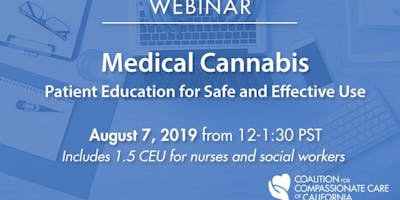Log In To Your Account
Log In With Facebook

With more than half the states now permitting some medical use of cannabis for its constituents, it is incumbent upon practitioners to seek out knowledgeable sources of information regarding the use of cannabis as a medicine. The existing body of data has largely been derived from studies of recreational users, who may be a distinctly different population from patients wishing to use cannabis as a medicine Existing research has also focused on the psychoactive properties of THC, but it is increasingly clear that cannabis contains a complex group of non-psychoactive chemical constituents which may modulate one another’s actions. Different dosage forms, dosing regimens and multiple patient-related factors, as well as provider confusion and inexperience, make it difficult to create a standard plan for dosing medical cannabis. With the medical literature providing very little information which might be used to guide patients in their desire to use this safe and effective medicine appropriately, this presentation will provide guidance derived from 20 years experience in a cannabis-recommending family practice. It will cover cannabis constituents, dosage forms, drug interactions, and rules of thumb for cannabis dosing which may be used to guide patients in determining what a safe dose for their specific needs. 1.5 CEU included for nurses and social workers. Webinar participants will be able to: Explain the receptor-based effects of endogenous and exogenous cannabinoids List the principal phytocannabinoids and sources of data regarding their therapeutic uses Describe the entourage effect and its importance in cannabis dosing Describe cannabis dosage forms and differentiate among their pharmacokinetics Employ patient teaching strategies for safe and effective cannabis use. Faculty: Mariavittoria Mangini, PhD, FNPHoly Names UniversityOakland, CA Mariavittoria Mangini, PhD, FNP, has been a family nurse practitioner since 1982. She has written extensively on the impact of psychedelic experiences in shaping the lives of her contemporaries, and has worked closely with many of the most distinguished investigators in this field. Her current project is the development of a Thanatology program for the study of death and dying. She completed her doctorate in Community Health Nursing at UCSF, where her research centered on drug use and drug policy. Currently she is the director of the MSN/FNP program at Holy Names University in Oakland. She has 35 years experience in Family Practice and Women’s Health including 24 years with the primary care practice of Dr. Frank Lucido, one of the pioneers of the medical cannabis movement. Their practice was one of the first to implement the California Compassionate Use Act of 1996, one of the first medical cannabis laws nationwide, when it became law. CONTINUING EDUCATION Full attendance at the live webinar (you must attend a minimum of 50 minutes) is a prerequisite for receiving professional continuing education credit. Attendees requesting CEU credit must each call into the webinar individually using the call-in number and computer link from your instruction email for your attendance to be documented. If you do not follow these directions, there is no official documentation of your attendance, and you will not receive CEU credit for this webinar. Ask us about special arrangements offered to CCCC organization members. You are also required to complete an online survey within 30 days following the webinar to receive a a CEU certificate or certificate of attendance. A link to the evaluation will be provided in an email sent to you within 48 hours following the webinar. The email will also include links to the presentation recording and slides. Certificates will be sent via email. Nursing: Provider approved by the California Board of Registered Nursing, Provider #CEP 15403, for one and a half (1.5) contact hours.Social Work: Course meets the qualifications for one and a half (1.5) hour of continuing education credit for LMFTs, LCSWs, LPCCs and/or LEPs as required by the California Board of Behavioral Sciences. CCCC is approved by the California Association of Marriage and Family Therapists to sponsor continuing education for LCSWs and LMFTs, Provider #91987. Chaplains – This program may be used for continuing education credit for chaplains certified with the Board of Chaplaincy Certification Inc. CANCELLATION POLICYCancellations must be made in writing no later than three (3) business days prior to the webinar, and faxed to (888) 789-9475 or e-mailed to [email protected], to receive a full refund. No refunds will be made after this date. Substitutions are encouraged and can be made by calling (916) 489-2222. ANY QUESTIONS?CCCC maintains responsibility for this course and its content. Please contact us at (916) 489-2222 or email [email protected] with any questions, to address a grievance, or to request special ADA accommodation needs. Note: When registering, please use the email address of the person attending the webinar.